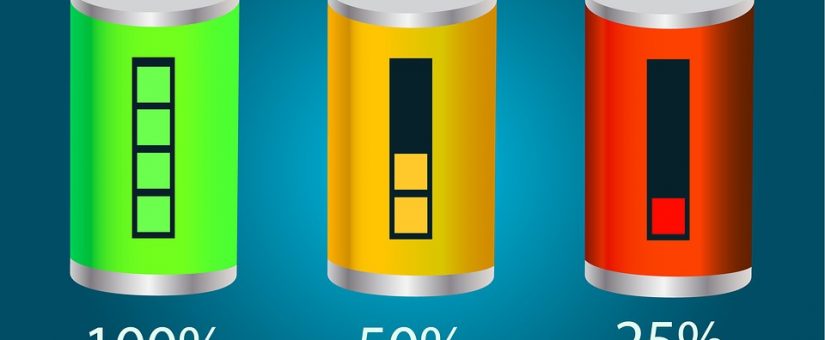
Managing your energy: how to keep your batteries charged
- Posted by Liz Gooster
- 0 Comments
- energy, performance, personal development, productivity, resilience, SPACE to Grow
‘Energy is all there is.’
Albert Einstein
How do you feel when you have plenty of energy? Ready for anything. Able to cope, to bounce back from any setbacks that may arise. Capable. Alive. Up for the challenge. Life goes more smoothly. These are the kinds of feelings we experience when our energy tanks are full. For me I characterise it as a ‘back to school’ feeling: everything feels fresh and new and full of promise. Metaphorically speaking, the slate’s wiped clean, I have new shoes, clean exercise books, sharp pencils. The air is invigorating, my mind is rested and exhilarated. Conversely, what’s it like when our energy is depleted? We feel drained. Overwhelmed. Everything’s a struggle. Life is an uphill battle. When my own energies are low I lose perspective, get bogged down in trivia, feel irritated and put-upon, sluggish and frustrated.
Energy and performance
We perform better, we get more done, we feel better, we’re nicer people to be around when we keep our energy reserves topped up. We’re more creative, resourceful, better at what we do. Yet we often run our batteries flat in the attempt to accomplish everything we think we need to. It can even be a badge of honour for some people and in some organisations to exist on four hours sleep, work 18 hour days, never take a holiday, survive on fast food, wind down with alcohol and gear up with regular caffeine hits. The macho, ‘lunch is for wimps’ attitude has not gone away in today’s always-on, 24-7 world!
To give yourself chance to flourish and be successful, you need to manage your energy and build your resilience through discovering the most effective ways to renew, recharge and nurture your own energy and wellbeing. I’m using ‘energy’ in a very broad sense here, encompassing everything from the physical things you need to keep you healthy and functioning at your best (enough sleep, plenty of water, nutritious food, fresh air) to the things that help you relax and recharge your energy levels (exercise and sport, spending time with family and friends, hobbies and pastimes, a hot bath and a good book – whatever works for you). There’s also your psychological nourishment, whether you find that in spiritual beliefs, practices like meditation and mindfulness, community engagement, new learning, or personal growth and development.
Prioritising your energy management
While the growth of the fitness and wellbeing industries over the last decade has pushed many of these things more into the foreground, we still often encounter a prevailing sense that they are indulgences and luxuries, something to focus on ‘when we have time’. But most of us have more things to do than we have time to do them in, so we will never have time. Yet if we know that keeping our energy levels topped up enhances our performance and makes us more productive in every area of our life, why don’t we see this as an essential priority? Switching our focus to managing our energy rather than our time can cause a critical shift in mindset. As Jim Loehr and Tony Schwarz say in their book, On Form, ‘The number of hours in a day is fixed, but the quantity and quality of energy available to us is not’. Recognising that our energy is variable but that it won’t renew itself automatically without some effort on our part is a good first step in putting this new perspective into practice.
3 Tips for managing your energy
The following tips can help:
- Develop an understanding of what you personally need to sustain your energy at an optimum level. Make a list of your own ‘energy boosters’ and start building these things into life on a daily or weekly basis. Find ways to keep yourself accountable and committed to doing this, either by yourself or with the support of others
- If it feels selfish or unimportant to place such a high priority on your own wellbeing, remember the instruction about the use oxygen masks on planes: ‘always fix your own mask before placing masks on children’. You’re no good to anyone if you can’t breathe
- Check in on your energy and commitment levels when you attend a meeting or begin an important task. Use the self-score tool below, scoring yourself from 1-4 on each of the measures. Now add up your total. 16 is the perfect score on every measure; anything less than 12 jeopardises your chances of achieving your goals or having a good meeting. This simple model will help you understand where your energy deficit is coming from. You may be able to address it. For example, your score for Emotional Quality is 1, fully negative, just as you sit down to prepare a critical strategic report. You realise you’re feeling anxious and disengaged because you haven’t addressed a time-sensitive client issue. Perhaps you can make a quick phone call to set your mind at rest before continuing. At the very least you will be more aware of it, which can help disentangle what’s directly related to the task at hand and what’s unrelated. For instance, you find yourself scoring your quantity of energy as 1, exhausted, at the start of a key meeting. On reflection, you recognise that this is not because you don’t want to participate in the meeting, but because you had a bad night’s sleep. Or, maybe you don’t want to be in the meeting, which gives you an altogether different issue to address!

This post concludes my SPACE to Grow series. If you enjoyed this post, you might like to check out the others in the series (see links below). And I’d love to hear what you like and don’t like about this and any of the other posts, so please do get in touch
If you liked this, you may also be interested in:
- This audio recording from Jim Loehr, Founder of the Johnson & Johnson Performance Institute, talking about energy management and how health ignites performance (with health seen on four levels: physical, emotional, mental, spiritual) and also his book, On Form: Managing energy, not time, is the key to high performance, health and happiness
- This Glassdoor blog post offering tips on ways to boost your energy and wellbeing
- The other posts in my SPACE to Grow series, on: Self-awareness; Positive Mindset; Action; and Connection
- My post, Time for a holiday: relax, recharge, renew

I like to describe myself as happily ‘At Large’ in an independent portfolio career, balancing coaching, leadership development, coach training and being a mum to my young daughter. Positive psychology is a big influence on my work and I’ve recently gained an MSc in Applied Positive Psychology & Coaching Psychology from the University of East London. My interests include reading, writing, travel, yoga, Zumba, coffee and wine! Connect with me on LinkedIn and sign up for my newsletter, Positive Intentions.



0 Comments